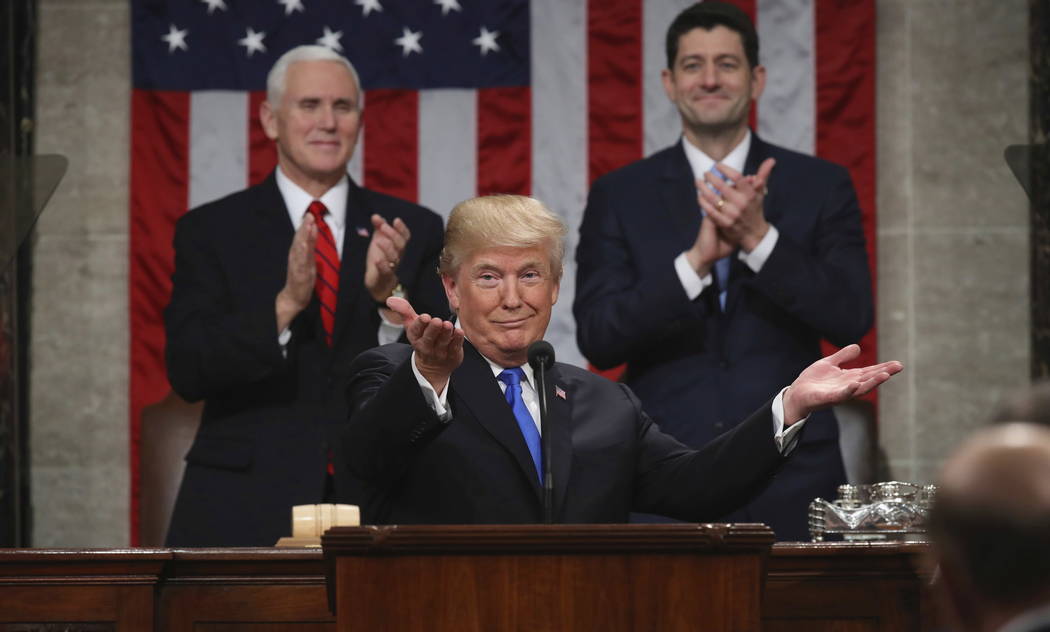COMMENTARY: A primary challenge to Donald Trump? You can’t be serious
A lot of Republicans still believe in the power of competition. A poll in November indicated that 40 percent of them, and 72 percent of all Americans, would like to see President Donald Trump face a primary challenge. But Republican politicians, even those who have strong objections to Trump, have been inhibited by the conventional wisdom that running against Trump in the 2020 Republican primaries would be a suicide mission.
Trump is in a very strong position for renomination. An anti-Trump conservative named Andy Smarick has recently argued, however, that the risks of challenging Trump are greatly overestimated. He contends that an ambitious Republican could do himself a world of good by running against President Trump for the nomination in 2020. That candidate, Smarick allows, would probably lose. But he would establish himself (or she would establish herself) as a top contender for the leadership of a post-Trump party, either in 2020 if Trump lost the general election or 2024 if he won. The challenger would also give a boost to the influence of his ideas within the party.
By criticizing the president in an op-ed published Tuesday, Mitt Romney has reopened the question of whether Trump will have a rival for the nomination.
In fact, serious primary campaigns against the renomination of a sitting president have gotten rarer. The last one was Patrick Buchanan’s challenge to George H.W. Bush in 1992, and even that campaign was only somewhat serious: It posed a threat of harming the incumbent president, not really of denying him the nomination. The next most recent example? Ted Kennedy going after Jimmy Carter in 1980.
Why don’t presidents draw serious primary challengers anymore? I suspect the answer has to do with two trends: the increased ideological uniformity of the parties and the rise of negative partisanship.
Just as some Democrats blamed Kennedy for Ronald Reagan’s victory in 1980, some Republicans blamed Buchanan for Bill Clinton’s in 1992. If an anti-Trump Republican runs for the nomination, loses it, and Trump then loses in November 2020, the blowback against the challenger will be more intense: He will be blamed for helping give the nation President Kamala Harris (or whoever). If the candidate runs and then Trump wins the general election, a lot of Republicans will view him as the guy who acted as Harris’s useful idiot. Destroying the challenger’s political future will also be, we can be fairly confident, a high priority for the re-elected president.
A paradox may be at work here: Negative partisanship makes voters reluctant to back primary challenges against incumbent presidents, but also means the challenges cannot have the impact they fear. A very strong primary-season opposition to Trump did not keep him from winning the votes of most Republicans in November 2016.
But to say that the fear of a primary is overblown is not to say that the fear is politically unimportant. Like it or not, ambitious Republicans have good reasons to think that a primary campaign against Trump would end their political careers. Smarick’s challenge to the conventional wisdom is invigorating but unsuccessful. A primary challenge to Trump would probably also be both of those things.
Ramesh Ponnuru is a Bloomberg Opinion columnist.

















